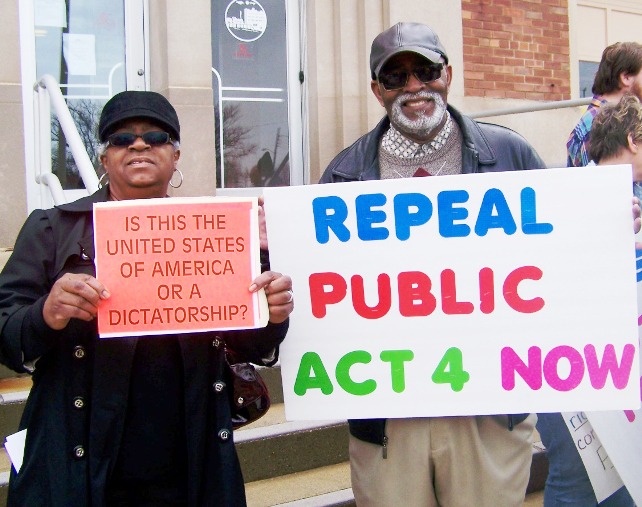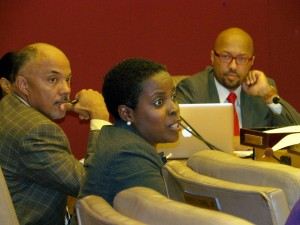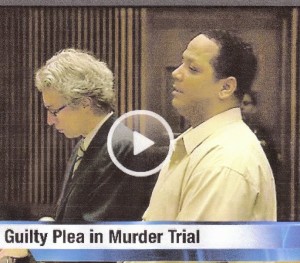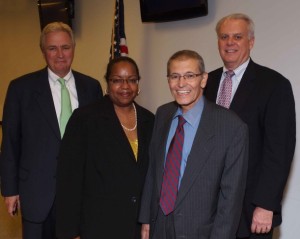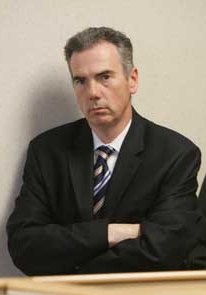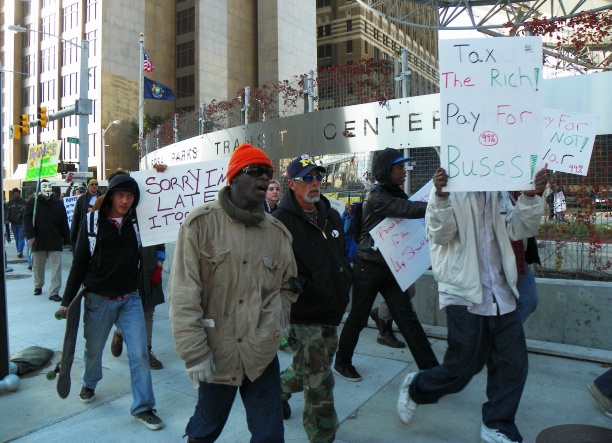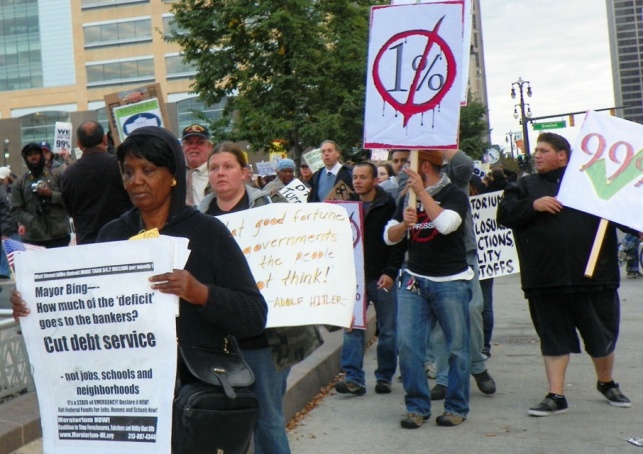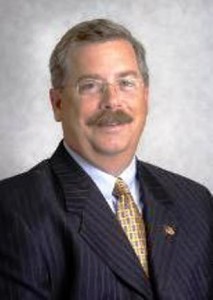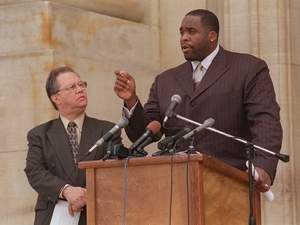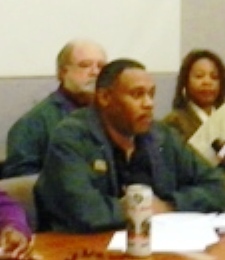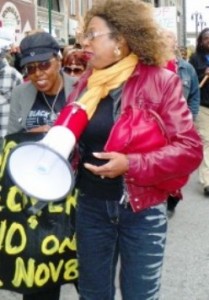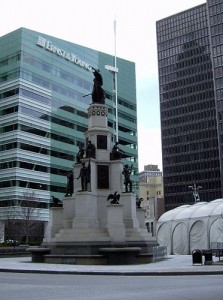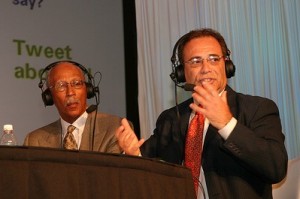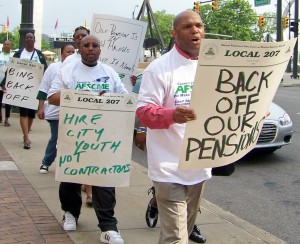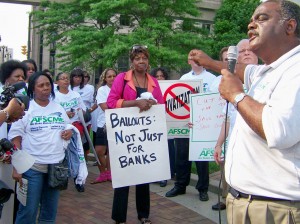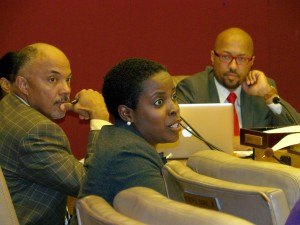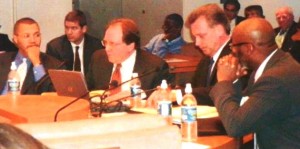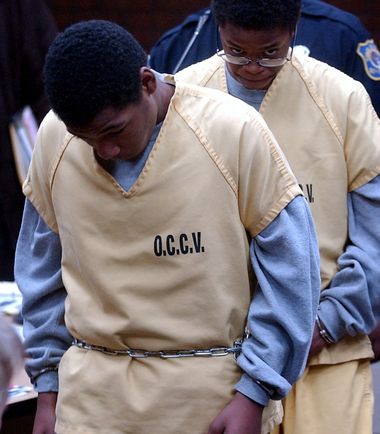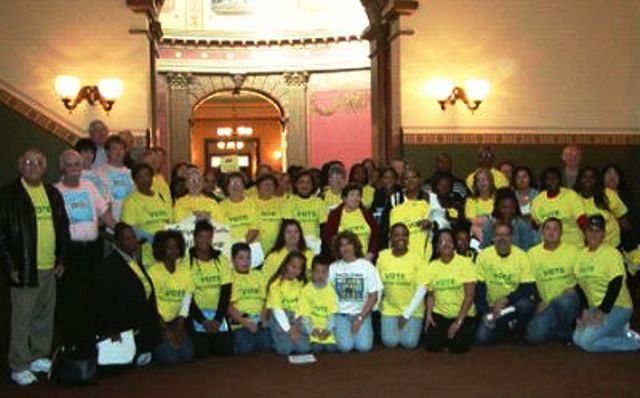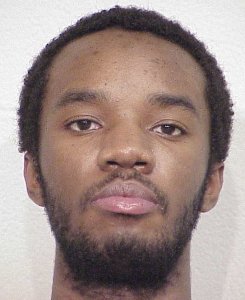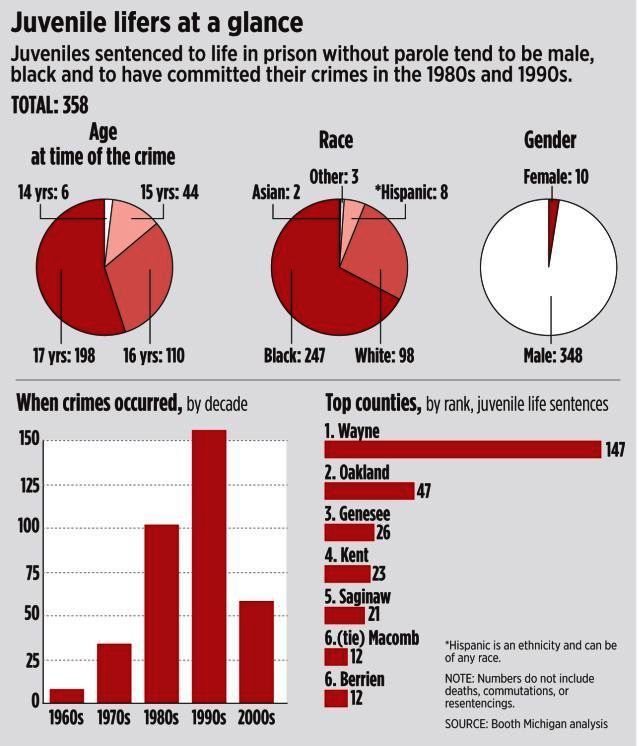Back in August, Michigan Governor Rick Snyder sought to bypass the normal court process and asked the Michigan Supreme Court to make a decision on the lawsuit challenging Public Act 4, the so-called Emergency Manager Law. (Details on the lawsuit filed by the Sugar Law Center and the Center for Constitutional Rights can be found HERE.)
Sugar Law Center proceeded to file a response challenging that request in September.
Today the Supreme Court spoke and the news, once again, is not good for the Governor. (I say “once again” because the Supreme Court already smacked down Governor Snyder just last week.) Instead of accepting Governor Snyder’s request to bypass the normal judicial process, they have asked both parties to submit briefs in support of their positions regarding the Governor’s request. The order is HERE (pdf).
It reads as follows:
The Executive Message of the Governor pursuant to MCR 7.305(A) was received on August 12, 2011, requesting that this Court direct the Ingham Circuit Court to certify certain questions for immediate determination by this Court. In lieu of acting on the Governor’s request at this time, we DIRECT the plaintiffs and the defendants to file with this Court by December 14, 2011, briefs, including a statement of facts, in support of their positions on the questions posed by the Executive Message of the Governor. The parties shall address:
- whether the requirements of MCR 7.305(A) have been met;
- whether the urgency of the request under MCR 7.305(A) is mitigated by MCR 7.302(B)(4)(b), which allows a party to request this Court to bypass review by the Court of Appeals after “a ruling that a provision of . . . a Michigan statute . . . is invalid”;
- whether 2011 PA 4 violates Const 1963, art 3, § 2 (separation of powers), or art 4, § 1 (legislative power), in its authorization of an emergency manager;
- whether 2011 PA 4 violates Const 1963, art 4, § 29 (local or special acts) by permitting an emergency manager to exercise powers of a local governmental unit;
- whether 2011 PA 4 violates Const 1963, art 7, § 22 (charters, resolutions, ordinances, enumeration of powers) by allowing an emergency manager to exercise powers of a local governmental unit;
- whether 2011 PA 4 violates due process rights set forth in Const 1963, art 1, § 17, or violates any right that is retained in Const 1963, art 1, § 23, by allowing an emergency manager to assume the power and authority of a local governmental unit;
- whether 2011 PA 4 violates Const 1963, art 7, §§ 21, 22, and 34 (provisions for local government) by allowing an emergency manager to assume the power and authority of a local governmental unit;
- whether 2011 PA 4 violates Const 1963, art 9, § 29 (Headlee Amendment) by requiring the local government for which the emergency manager is appointed to pay for certain costs associated with the emergency manager.
The Executive Message requesting the bypass remains under consideration.
While most of these items are pretty self-explanatory, the first couple warrant a bit of explanation. [I’m not an attorney so, if any attorneys out there spot something wrong in my analysis, please let me know.]
The first item references Michigan Court Rules (MCR) Subchapter 7.300 which cover the Supreme Court. Section 305 (A) allows parties to ask the Supreme Court to skip reviews by lower courts and the Appeals Court (which is the last stop for appeals before the Supreme Court) if “the question is of such public moment as to require early determination according to executive message of the Governor addressed to the Supreme Court”. Snyder’s request was an “Executive Message”. So the first item is basically asking “did he meet this requirement?”
The second item refers to MCR 7.302(B)(4)(b) which allows for appeal directly from a lower court to the Supreme court if it “is from a ruling that a provision of the Michigan Constitution, a Michigan Statute, a rule or regulation included in the Michigan Administrative Code, or any other action of the legislative or executive branch of state government is invalid”. In this case, we’re talking about a Michigan Statute (that’s what Public Act 4 is) so, if the Ingham Circut Court rules that it is invalid, the Snyder administration can then leapfrog the Appeals Court and go directly to the Supreme Court under this rule. So, the second item basically asks “is this ‘urgency’ made less urgent by the fact that the Snyder administration will be able to do this if the Circuit Court rules against them?”
The fact that the Supreme Court didn’t agree to Governor’s Snyder’s request suggests that his case is weak. The lower courts are normally the place where discovery happens; where both sides present their facts and arguments. These are then used in subsequent decisions. The Supreme Court seems to be signalling that things aren’t so cut-and-dry as the Governor suggests they are and that they need more information. If that is the case, it seems to me that they will be inclined to let the normal judicial process play out as it should. They’ve also made it clear that they are not lapdogs for the Republican Party. Recall that the Supreme Court has issued smackdowns to Rep. Paul Scott regarding his recall no less than three times recently as well.
The Sugar Law Center issued a press release welcoming this decision.
“Instead of immediately granting the governor’s request to take up this case, the Supreme Court is challenging the Snyder administration to address why an urgent appeal short-circuiting the normal judicial process is necessary ,” said Tova Perlmutter, Executive Director of the Sugar Law Center. […]
Sugar Law’s Legal Director, John Philo, said the appropriate place for the case for the facts to be developed and to be first heard is in Ingham County Circuit Court. Philo has asked the court to reject the administration’s request to bypass the trial court and make an immediate decision in the case.
“Initial fact-finding and critical evidence occurs at the circuit court level,” said Philo. “This is why we have an established judicial system and for the governor to want to skip that process is troubling.”

